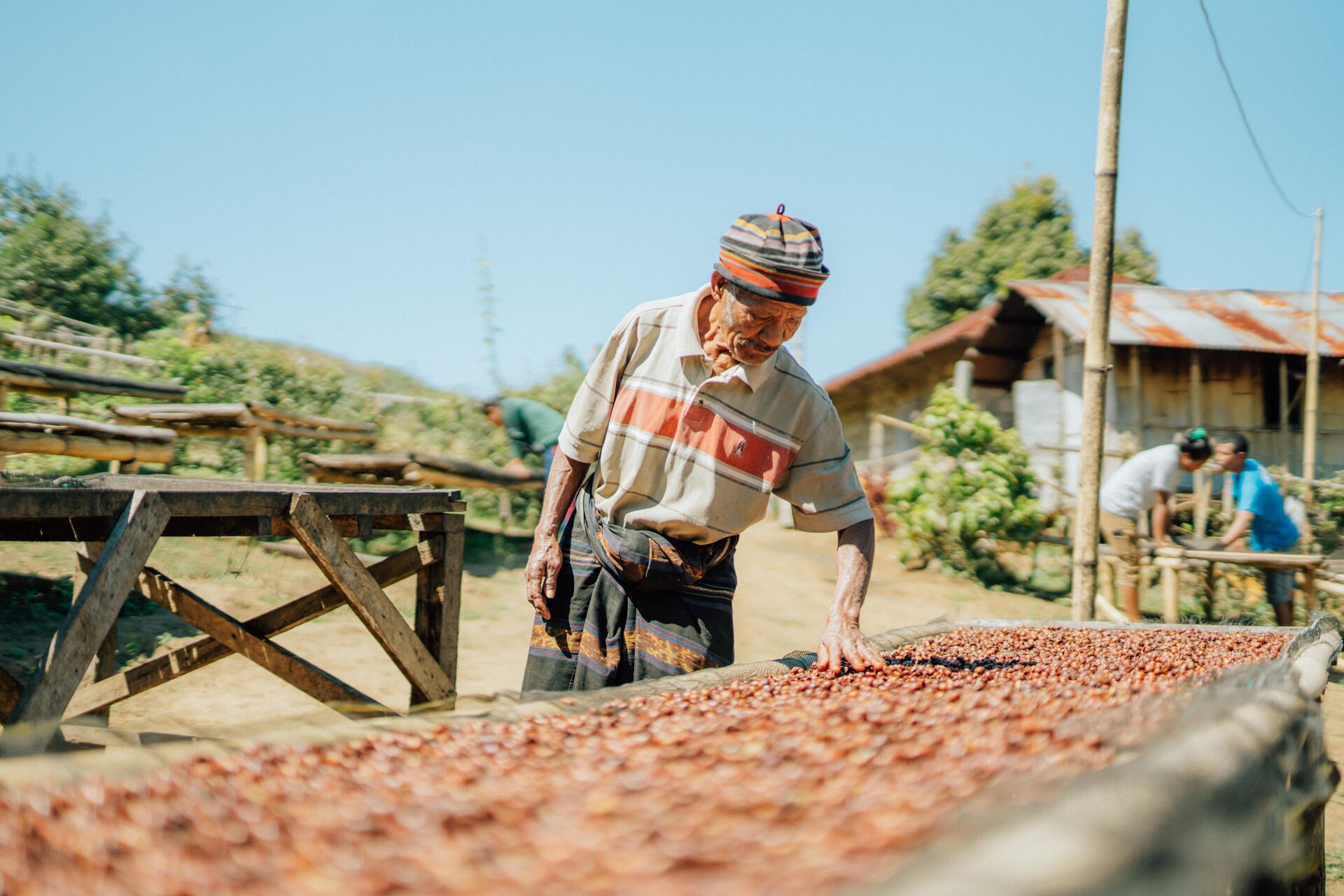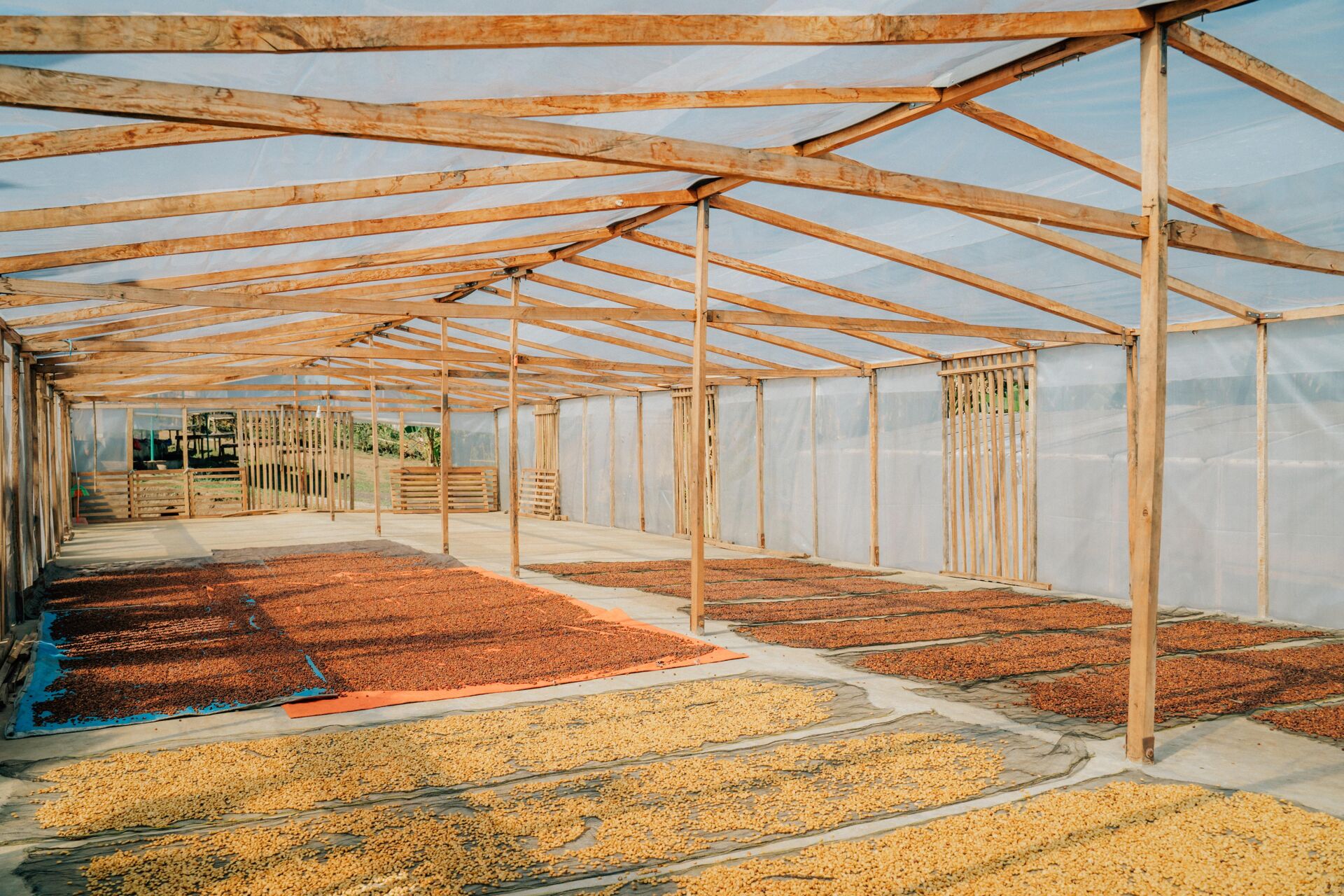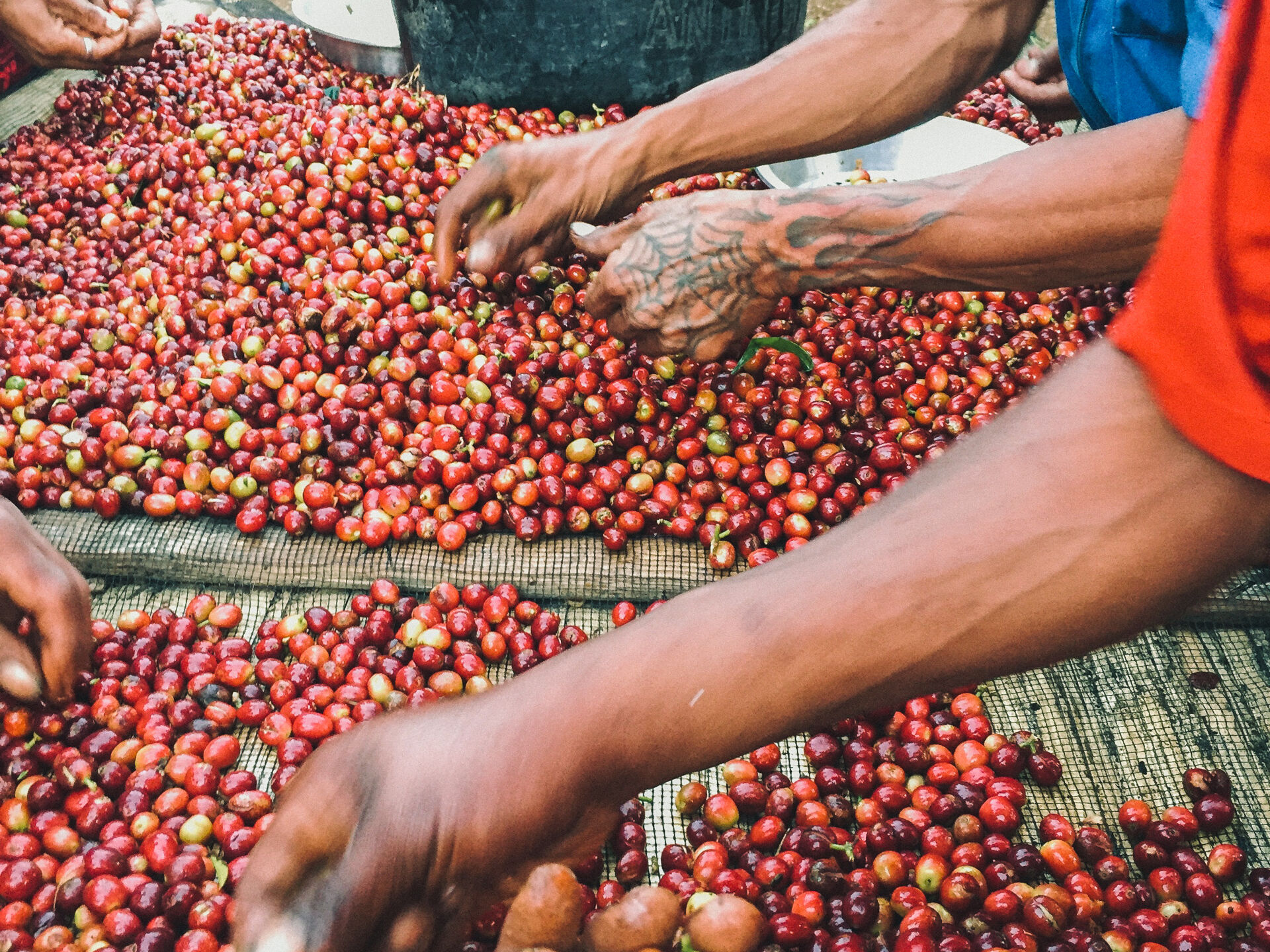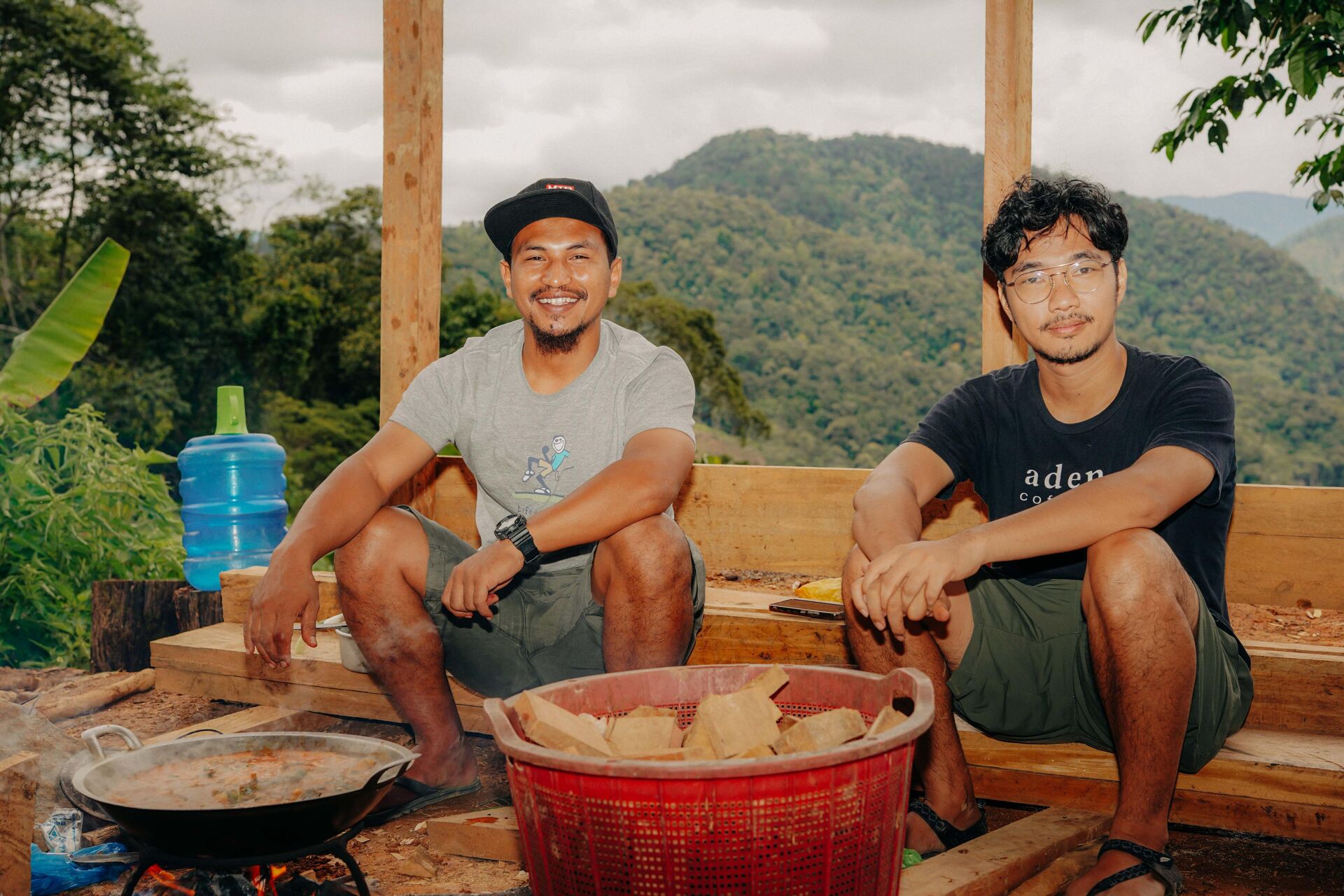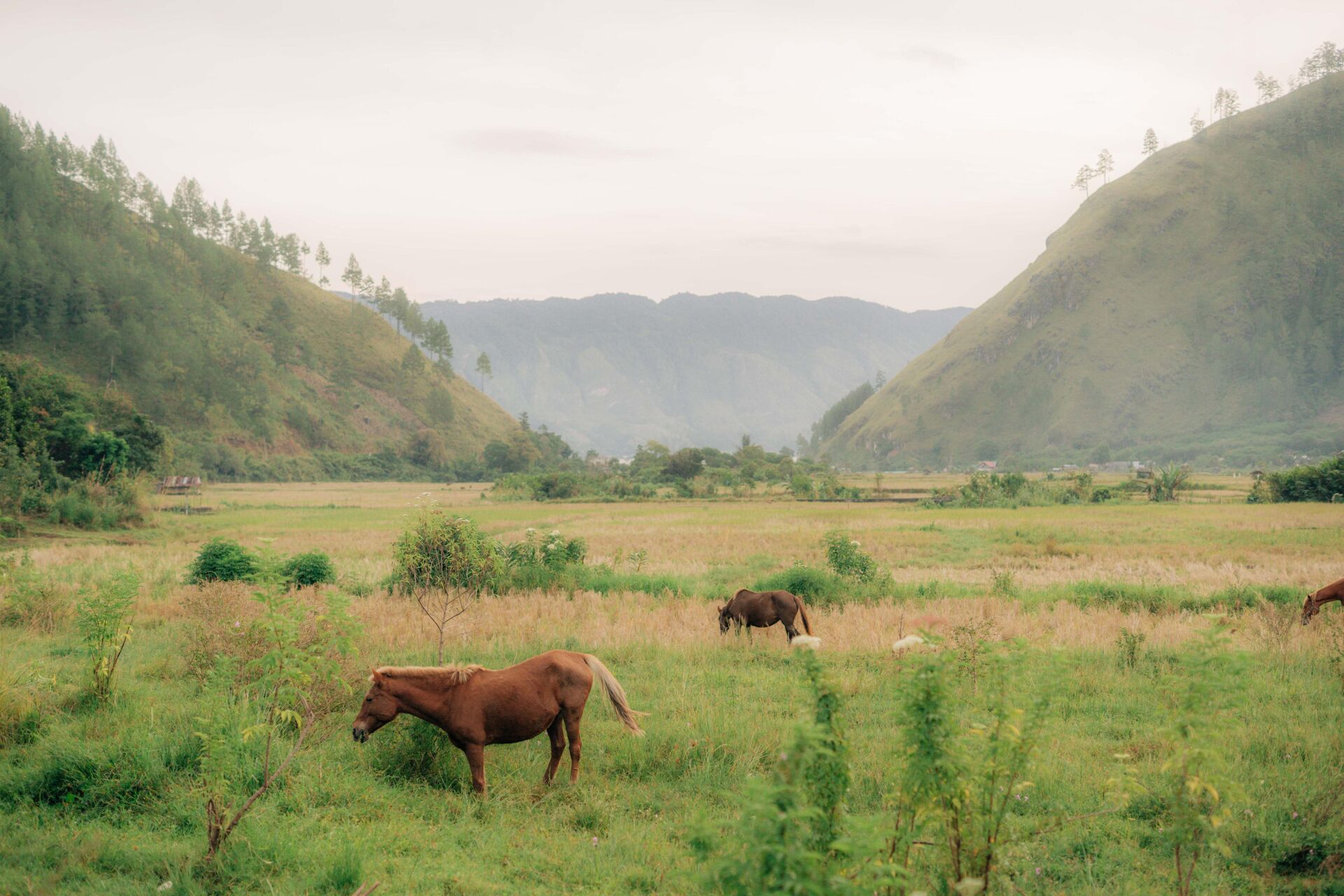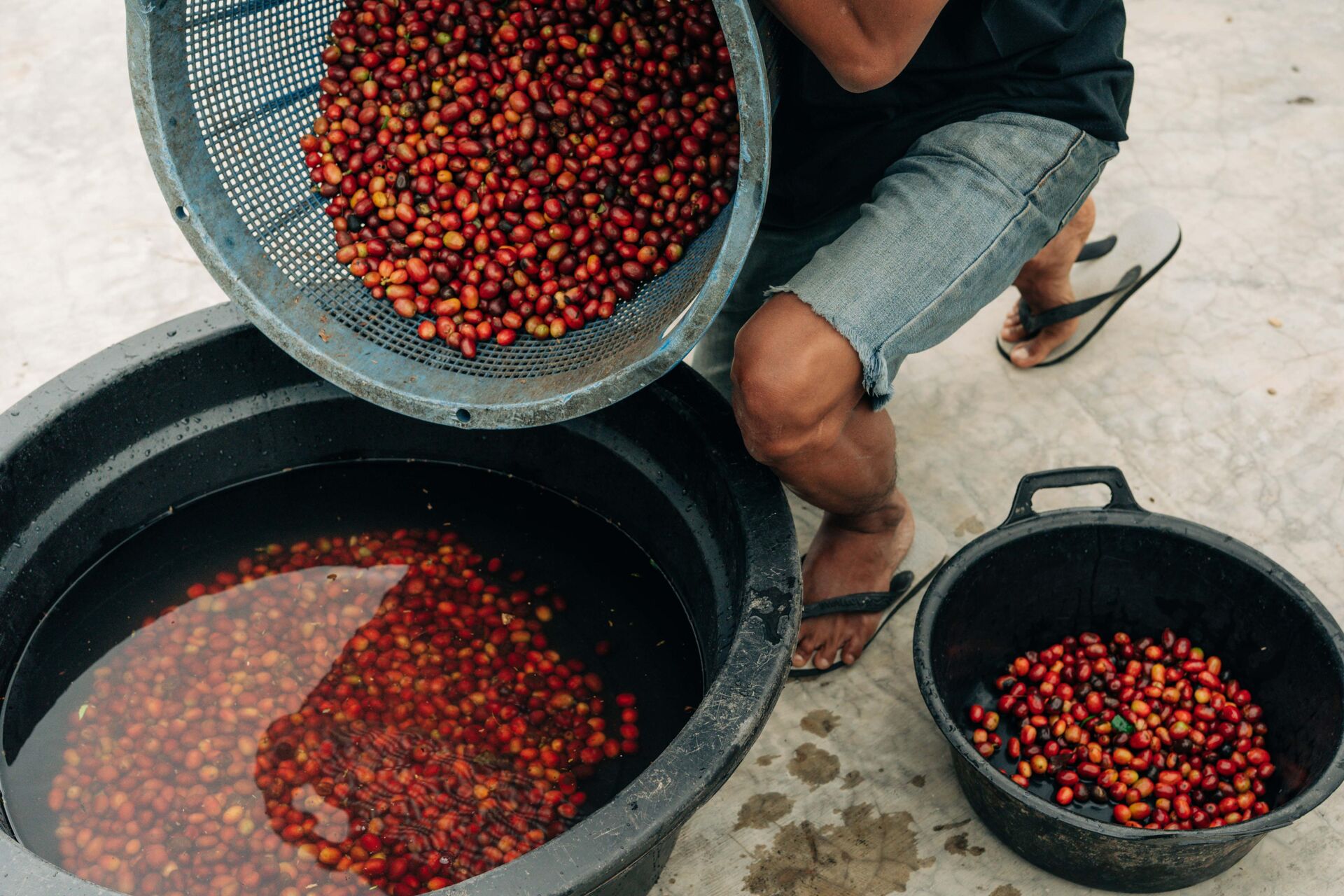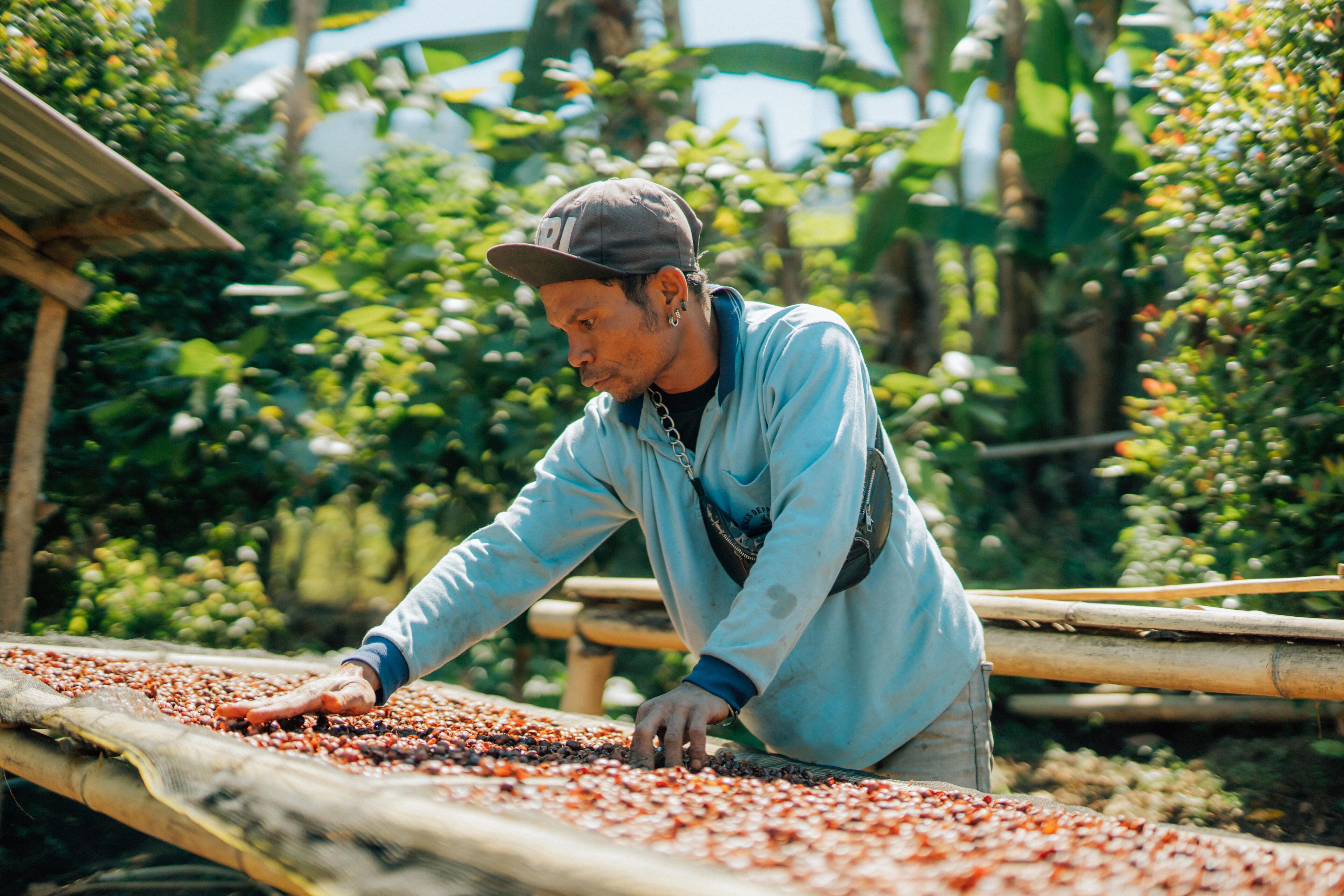
Drying coffee on the island of Flores, Indonesia.
Klasik Beans, an inspiring example for Indonesian coffee growing
Indonesia, with its 16,000 islands, offers a diverse and often contrasting economic picture. The island of Flores is no exception, and a series of challenges mark its economy.
Rural development, in particular, is hampered by difficult access to loans, excessive debt and heavy dependence on both industrial players and government aid. Except when a private player like Klasik Beans decides to get involved with communities, and makes agriculture emerge as a key vector for development and independence.
Klasik Beans, the Lio community and the Turajaji agreement
Klasik Beans and Adena Coffee distinguish themselves in the Indonesian specialty coffee market by working directly with farming communities. Such is the case of the Lio community, in the village of Toba, on the island of Flores. This community is made up of 300 coffee growers spread over 200 hectares. They produce 30 tonnes of coffee a year. This is the first year that Klasik Beans and Adena coffee have worked with them.
According to tradition, the Lio are the guardians of the Kelimutu and Kelibara mountains. The Lio believe in the reincarnation of spirits, who follow the water cycle from death to rebirth through the mountains and rivers.
This deep connection with nature also guides their community practices, such as the customary “Turajaji” agreement, which governs the distribution of tasks and resources among community members.
Each member plays a specific role: some devote themselves to growing coffee, others to food crops, textile crops such as linen and cotton, and others specialize in garment manufacture. This mutual cooperation creates a strong social fabric, where sharing is at the heart of daily life.
Pictures :
Island of Flores (photos 1-4), Fahman Yoga (producer) and Abyatar (Adena Coffee) (photo 5), Gayo, on the island of Sumatra (photos 6-10)
The impact of a drying station on an entire community
Klasik Beans, together with Adena Cafés, have played a crucial role in this community by helping to build a drying station. This has enabled producers to take ownership of an essential stage in the coffee value chain - drying - and to get more value out of their coffee.
The local microclimate, characterized by daily fog at 1 p.m., favors slow ripening of the cherries, giving their coffee exceptional quality.
The coffee trees are grown at an altitude of 1300m in an agroforestry system with a wide variety of shade trees.
Production methods are traditional and chemical-free. The coffees are harvested by hand on the volcanic slopes. The coffee beans harvested are distinguished by their generous size and delicate, sweet profile.
Buying these traceable, community-processed coffees has an impact on their lives. They no longer sell their cherries to the local collector, but to an exporter, emphasizing traceability and their work.
They are no longer just recipients of government aid, but become autonomous players, able to invest in their agriculture, their education and strengthen the resilience of their community.
In this way, agriculture and the production of quality products are not just a means of subsistence, but truly engines of development for local producers.
An inspiring example
In a landscape where only the big players have traditionally dominated, the hard work of Klasik Beans and Adena Cafés deserves recognition. Their commitment to rural development and the production of traced-quality coffee sets an inspiring example for the future.
Indeed, this promising region also offers prospects for the production of high-quality Arabicas in the years to come.
“Let's hope that coffee will enable us to continue to maintain our commitment to preserving the country and local production, to promote it and to let people know that a solution to the climate crisis could be to maintain local wisdom, to produce quality food to share with the global community”, says Eko, Director of Klasik Beans.
Did you like this article? Share it with your community:

